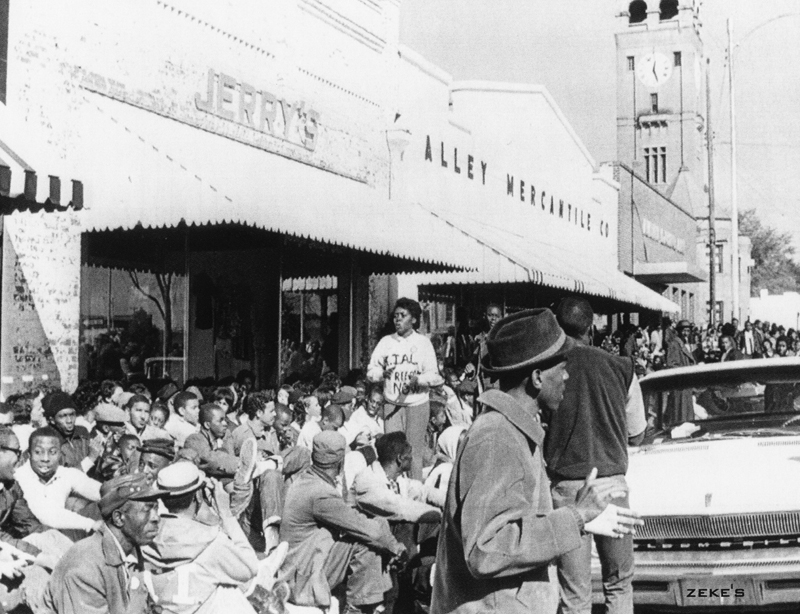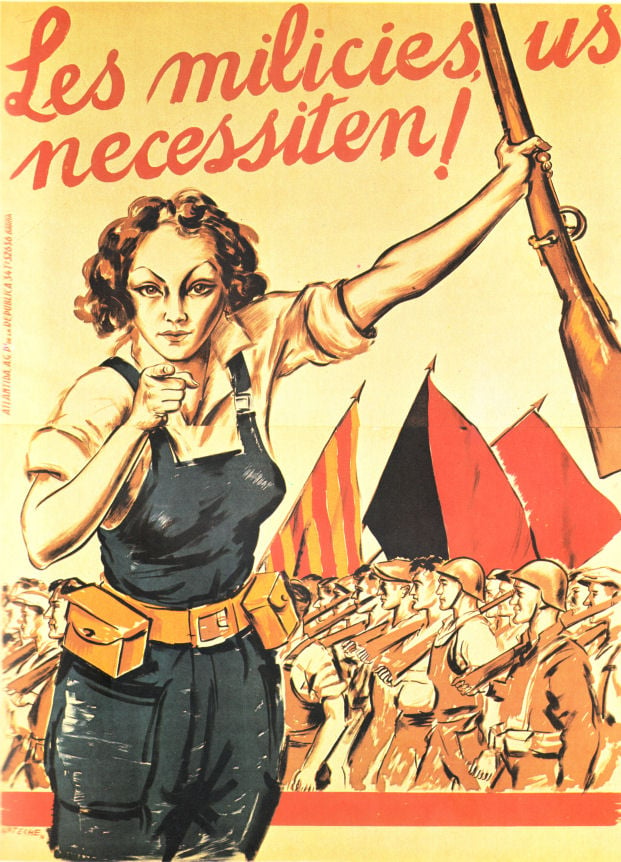- cross-posted to:
- workingclasscalendar
stahmaxffcqankienulh.supabase.co
- cross-posted to:
- workingclasscalendar
SNCC Adopts Anti-War Position (1966)
Thu Jan 06, 1966

Image: People protesting the murder of Sammy Younge, January 1966, crmvet.org [snccdigital.org]
On this day in 1966, the SNCC adopted an official stance against the Vietnam War, connecting the struggle for liberation at home to Vietnamese liberation struggle. “We ask, where is the draft for the freedom fight in the United States?”
The Student Nonviolent Coordinating Committee (SNCC) was the principal channel of student commitment in the United States to the Civil Rights Movement during the 1960s. The group emerged in 1960 from the student-led sit-ins at segregated lunch counters in Greensboro, North Carolina and Nashville, Tennessee and played a key role in helping black people in the South both register and exercise their right to vote.
In a November 1965 staff meeting, SNCC decided to issue a public statement about the Vietnam War, although some workers voiced concern about the political consequences. One worker wrote “While we care a great deal about both Vietnam and civil rights, we can’t do anything to help the Vietnam situation, and we can hurt ourselves by trying.”
On January 3rd, 1966, twenty-one year old civil rights activist Sammy Younge was murdered by white supremacists in Tuskegee, Alabama. His death pushed SNCC to make a public stance on the war, regardless of the political consequences.
Three days later, on January 6th, SNCC’s Executive Committee released a statement on the Vietnam War, writing “the murder of Samuel Young in Tuskegee, Alabama, is no different than the murder of peasants in Vietnam, for both Young and the Vietnamese sought, and are seeking, to secure the rights guaranteed them by law.” Here is an excerpt from their statement:
"We believe the United States government has been deceptive in its claims of concern for the freedom of the Vietnamese people, just as the government has been deceptive in claiming concern for the freedom of colored people in other countries as the Dominican Republic, the Congo, South Africa, Rhodesia, and in the United States itself.
…We question, then, the ability and even the desire of the United States government to guarantee free elections abroad. We maintain that our country’s cry of ‘preserve freedom in the world’ is a hypocritical mask, behind which it squashes liberation movements which are not bound, and refuse to be bound, by the expediencies of United States cold war policies.
…We recoil with horror at the inconsistency of a supposedly ‘free’ society where responsibility to freedom is equated with the responsibility to lend oneself to military aggression…We ask, where is the draft for the freedom fight in the United States?"
- Date: 1966-01-06
- Learn More: snccdigital.org, en.wikipedia.org, snccdigital.org.
- Tags: #Civil Rights, #Imperialism.
- Source: www.apeoplescalendar.org

